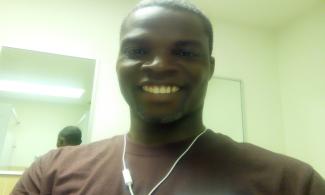
To be sure, it was not when he assumed office in 2015 that Buhari embraced the goblin of injustice and became an accessory to killers. Recall the gory fate of a few young Nigerians hacked mercilessly to death while serving the country up North because Buhari lost the presidential election that year.

It may be a difficult paradoxical pill to swallow, but the disheartening reality is that the current Nigerian ruler, President Muhammadu Buhari, has always been an accessory to mass homicides. Yes, you get it right – his famed but ruinous body language does encourage mass murderers and mullahs of astounding injustices to thrive and flourish. Since the gory news of the wanton killings that took place in Plateau State a few days ago, President Buhari has responded in the usual silly refrain of buck passing that strongly encourages the nihilistic Fulani herdsmen to continue their homicidal escapades. When a president wrings his hands and blames political competitors for crimes he should put his feet down to combat manfully with all the appurtenances of state powers at his disposal, then no one needs to doubt that such a man is a vicarious abettor to the criminalities. Indeed, when a leader such as the Nigerian one is a stranger to the balm and principle of justice, he makes the objectionable duties of all kinds of roughnecks, freelance murderers, and sociopaths very much like a walk in the park.
To be sure, it was not when he assumed office in 2015 that Buhari embraced the goblin of injustice and became an accessory to killers. Recall the gory fate of a few young Nigerians hacked mercilessly to death while serving the country up North because Buhari lost the presidential election that year. What genuine outrage did he notably express in the wake of that heinous crime? Who was the author of the famous shocking expression, “the baboon and the dog will be soaked in blood”? Who in Ibadan, Oyo State, some years ago queried Governor Lam Adesina on “why are your people killing my people?”? Quite easy – Buhari. Move on to the saga that was the bloody reign of the late Sani Abacha. Of a truth, and justifiably so, not many would disagree that the name Sani Abacha is a fitting synonym for murder. Does anyone remember any statement ever made by the current Nigerian president in which he acknowledged the horrendous crimes of his former boss? What any minder of Nigerian history will remember is the paean Buhari, before and after gaining office as president, has consistently composed to glorify that compulsive murderer. The crux in this profile of President Buhari is that he is at heart alien to the meaning of justice. He develops feet of clay when he should stand apart from the abodes of exterminators.
Were President Buhari habituated to the virtues of fairness and firmness, the serially beleaguered inhabitants of Plateau, Taraba, Benue, Nasarawa, etc., would not be increasingly made to see the places they call homes turn into oceans of blood and mountains of bodies through the unchecked deadly exploits of some Fulani marauders. Yes, the farmer/Fulani herdsmen wrangle predates the Buhari administration. But the important question to ask is what vision and plan did Buhari come into office with as viable panaceas? We do know that when those killers went full blown mowing down lives in those states President Buhari maintained his contemptuous, abetting silence. When it was clear he was being noticed as an aider of the killings, the president and his coldhearted security aurochs and image minders went to town with the abominable canard that the killers were foreigners. They chorused that disgusting untruth as if it was the fitting remedy to the horrors of needless deaths being wrought by the Fulani herdsmen.
Then after the more carefully organized killings took place in Benue State between December 2017 and January 2018, the president still felt no serious need to go to the bereaved with the balm of comfort and assurance that they would get justice and no more would their land become a killing field. He caused the usual tired lines of superficial commiseration to be issued and later invited the elders from the hurting state to his palace, as a monarch would his miserable subjects. At that misplaced meeting, he tried to sound as one who truly felt the hurt of those elders. But because he is Buhari, an accessory to the pain of his guests, he unfeelingly told them: “I ask you in the name of God to accommodate your country men.” Momentarily remembering that he was showing too much of who his heart was with, he tepidly assured his poleaxed guests thusly: “You can also be assured that I am just as worried, and concerned with the situation.’’ Not even when he roused himself (no, “deigned” is the apt word) finally last March to visit those grieving states did he act as one who is not an accessory to the crimes of the Fulani herdsmen. Rather than furnish his Taraba hosts with details of how his administration would put a lasting end to the horrific killings, he traumatized them further by exhaling rather heartlessly that “more people were killed [in Zamfara] than in Taraba and Benue put together.” To an aider of mass murders, debating the numbers of dead people is preferable to farming out workable measures to prevent future deaths.
I ask, dear reader, the question: Does that comparative examination of the numbers of the dead across states by the president send any strong message of a coming hell to the killers? Again, consider President Buahri latest response to the fresh carnage by the herdsmen in Plateau State. He exculpated the killers (do not set any store by his condemnation of the killings) and located the responsibility in the hands of some nameless politicians. Is that the requisite response from a leader who is not an accessory to the crime in question? If President Buhari is justice-inclined and is truly sickened by the evils of those cutting short the lives of Nigerians in those states, why is the Minister of Defence, Mansur Dan-Ali, still a member of the Buhari cabinet in spite of his avowed support for the killer herdsmen? Why are the security big men, especially the Inspector-General of Police, still comfortably in office in spite of their glaring failures to check the killing sprees?
We have the excessive force and lightning speed with which the far less-threatening rebellion of the Nnamdi Kanu-led Indigenous People of Biafra (IPOB) was quelled to support the view that the herdsmen flourish in Benue, Taraba and other states because the Buhari administration knowingly aid them. The same can be said of the Shiite sect in Nigeria, led by Ibrahim El-Zakzaky; the Buhari administration came down heavily on the group and cared less about the unfairness the military irrationally meted out to the group in December 2015. But the herdsmen’s case is to the administration a burning hell whose fire can neither be doused nor permanently extinguished. Let’s not delay ourselves with the campaign against Boko Haram. The measured but exaggerated victory the administration has recorded against that destructive group proves that the Buhari administration can vanquish the killer herdsmen if it is not abetting them.
If by the next election in 2019 the voters do not put an end to the tenancy of President Buhari in Aso Rock, then they should prepare for more tragedies in the increasing loss of lives to Fulani herdsmen. In places where the supported herdsmen are not killing freely, the tunnel economic vision of President Buhari is doing the killings. In other words, what Nigeria has is a president whose silence and inaction inspire murderers and whose antediluvian understanding of statecraft endangers lives. If in his first term President Buhari cared less about the lives and wellbeing of Nigerians and was more pleased with being a sectional ruler, it is frightening to contemplate what his second term will be like. Nigeria may be on the road to some relief from needless deaths if Nigerians are brave enough to rid the presidency of the provincial Buhari and his fawning aides.
Ademola Adesola writes from the University of Manitoba, Canada.